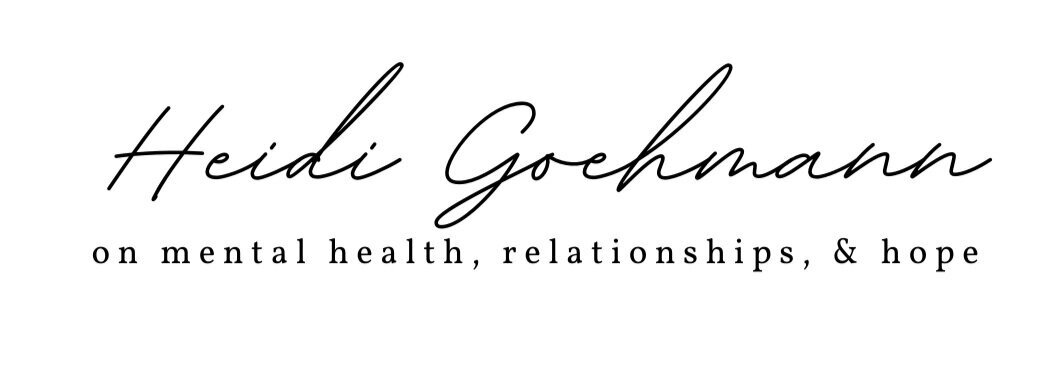Accessing Comfort: Building Emotional Security
The world is a chaotic place. As the internet so eloquently puts it:
Bring back precedented times.
We recently took a family trip to visit friends in Oregon. We ogled the seashore, hiked the Redwoods, and hammered fish and chips and brews at Fisherman’s Market (Eugene). I highly recommend all of these things if you have even the tiniest amount of resources available. Take a break, take a breath, and remember the world is a beautiful place despite evidence to the contrary.
And yet, the highlight of our trip was not the sea or the trees, but sitting with my hands wrapped around a mug of coffee with my friend, Sarah; and eating frozen pizza around the dining table with our families, talking about nothingness. In these small moments, we regulated one another with our paced breathing, found humor and laughter again in each other’s smiles, and righted the world by remembering tiny details - the shade of one another’s hair, the changing tone of my nose ring with time, our opinions on window shutters, and the way God speaks to us in bed at night when we worry over our children’s future.
We found comfort again, when it was hard to find.
Comfort
/ˈkəmfərt/
an emotion of inner consolation, related to tranquility and steadiness within a sense of inner or outer connection
Comfort is a noun and a verb, something we offer in a moment or across a lifetime of intimacy. Comfort is also an emotion that wells up within us, outside of our control, but connected to each of our neuropathways in unique interpersonal ways. Like an underground well, comfort lies within us, and we begin to find it by becoming experts, diviners of our inner worlds, listening quietly to see where comfort is more likely to be found for us and for each other.
Comfort, as a noun, according to Google is related to ease or freedom.
I wonder if ease in this instance is move about navigation and less about “easy.” In Dialectical Behavior Therapy, ease is a skill. Ease is a learned sense and pattern of moving forward when we are in distress, believing that we will not be completely overtaken. We practice ease by finding what grounds us outside of distress so that within us, so that we can find it nearby, deep within or without, when we are in distress. Ease is often found through connection in intimacy and mindfulness in the smallest things, remembering the largeness of God and the universe in my not-so-small-feelings.
Comfort is also a verb is related to “making things lesser.” I am partial to this understanding of comfort. Imagine the big feelings becoming smaller in our access to the emotion of comfort. In moving toward comfort, we expand comfort inside of us. We create a beautiful little comfort cycle when we interact with what comforts us, bringing up comfort more often within our system, which guides us towards things of comfort more clearly.
[something comforts us externally -> we build awareness of the sense of comfort within us -> we name our relationship to the thing — “this comforts me!” -> we know where to go for comfort -> even the memory or adjacent things build comfort within us]
Oxford dictionary relates comfort to the absence of a sense of constraint. In our world today, a thousand different factors lead to a sense that we are fenced in, powerless, or limited. At times, and in certain areas of our lives, this constraint is true. Accessing comfort widens the lens of our perception to help us see the areas where we are less constrained. Our minds are able to also expand access then to creativity and ideas for addressing the areas we are constrained in life.
Sitting with Sarah in her Oregon home, hiking a trail in the sunshine and salty air, looking up to see hundreds of Redwood tops much stronger and more steady than the government around me, all brought me comfort. Now, my task is to find them more often in whatever way I can at home - the memories of our friendship as I hold my tea mug,;the pines and oaks and birch outside my window, also steady and strong; in our silly snapchat streak across the miles, and stopping to hear the voices of my family laughing and railing injustice around the dinner table.
What brings you comfort?
What does comfort feel like in your chest, on your shoulders, and in your belly?
What moments of comfort have you had in special moments and where do you see those in small ways around you in your daily life?
Comfort and joy are cousins for a reason. Tidings and all of that…As comfort peaks our curiosity and sense of interest, we can live more fully and breathe more deeply because comfort is within us. Accessing comfort helps us access a more navigable life, whether in deep distress or ready areas of ease.
Listen within you today, hear the voice of a secure God in the insecurity of the world, bringing kindness and comfort to the cells in your being. Breathe in comfort for your soul, breathe out comfort to a world in confusion.
Find out more about the comfort, mindfulness, and reflection benefits of the natural world over at the Life in Relationship podcast: Life Transitions & the Natural World, season 7, episode 3:
Follow on instagram and youtube for reels and snippets defining emotions and building emotion skills:
Subscribe on Substack to get emotions, mental, and relational health articles each month:

